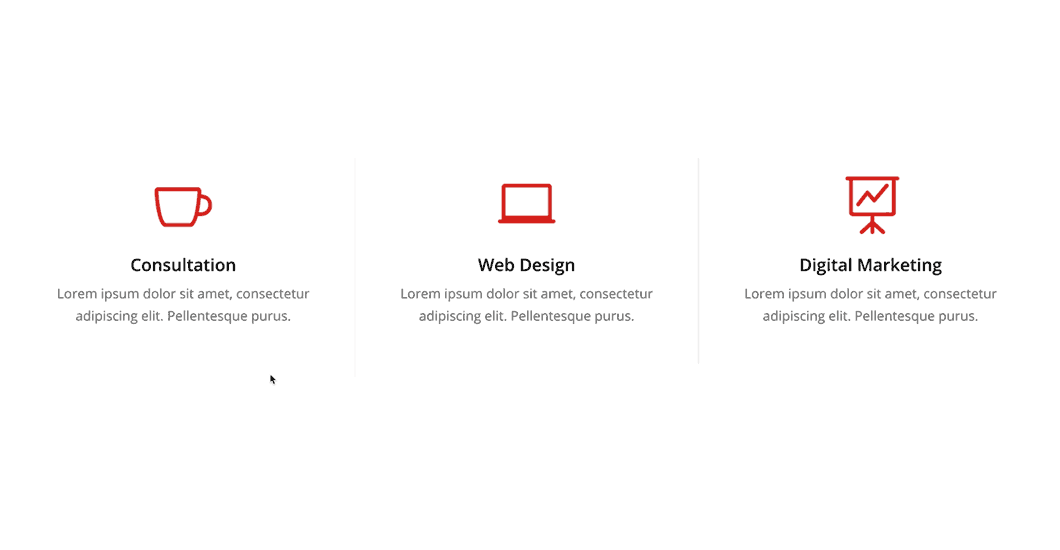The Power of Testimonials: How to Get Them and How to Use Them Well?
What are testimonials?
To put it simply: testimonials are honest and nice things your customers say about your products or services. Do you want to see some examples? Here are the testimonials for our products:
Do you need testimonials?
I know that I used to scoff at them. I associated testimonials with late-night TV infomercials and useless products which no one would buy without a lot of convincing. A good product should speak for itself, right?
But then, I started to learn about marketing and watch more closely how I did my shopping. And you know what? When choosing a book, I looked at online reviews. When buying a vacuum cleaner, I asked my friends what they were using. When I was buying a car, I chose the model a friend had and always praised for its sturdiness. And I checked online forums for other opinions.
The power of social proof is immense. The more personal, the better. The best thing you can do for your sales is to get people talking positively about your products. The second best thing is to put genuine positive testimonials on your website.
Your customers want to see that others have bought your products and been pleased. They want to make sure that you’re reliable and deliver what you’ve promised. And they want to hear it from someone other than you because, hey, you could be lying.
Do you want more sales and customers? If so, then yes, you do need testimonials.
How to get testimonials?
The simplest answer is always the best. So, to get testimonials, you need to ask for them.
Simple? Definitely. Easy to do? Not for everyone.
The trick is to get positive, convincing, personal testimonials from your customers. Not from Aunt Betty but from people who have actually used your products or services. And not everyone feels comfortable about asking their customers for reviews. Come to that, some customers might not feel comfortable giving a testimonial. You need to time it well, too, so they have a chance to use your product before you ask them for opinion.
So, how to get testimonials easily?
Automated Mailing
Prepare an email that will be automatically sent out to every customer one week after they make a purchase. In that email, ask your customers to tell you what they think about your products or services. You’ll also have to ask for their consent to publish their testimonial on your website.
Why do we think it’s the best solution? You won’t have to ask each customer respectively and you won’t have to think about the best timing. The emails will be sent automatically, and the testimonials will keep coming!
If you’re unsure how to do that, just Google “email automation” and relevant results will come up. It’s a useful marketing tool.
If you maintain a newsletter and have a list of subscribers, you may also reach out to them asking for reviews.
Offer something for free
Let me stress that it’s not about bribing your customers into giving you positive reviews. You give them something for free and in return they should give you an honest testimonial.
There are many ways in which you can make this work. For example, if you’re just starting out as a freelancer, you can offer your services for free or very cheaply, asking your customers to give you testimonials in return. Positive testimonials should give your career a nice boost.
I’ve also seen it done by self-publishing authors. Before they launch a new book, they offer a few select readers an ARC – an Advanced Reader’s Copy – for free, and when the book launches, the readers leave online reviews in return. This gives the book more visibility and a bigger chance for success.
Don’t ask for testimonials but for their opinion
There is a huge difference between asking your customers to write a somewhat official statement that will then be published, and loosely asking for their opinion. Some may shy away from the first but be happy to give you the latter.
Ask an open question, for example: “Could you tell me what you liked about our new plugin?”. And when they tell you, simply ask them for permission to publish their response on your website.
Use the testimonials that are already there
If you have Twitter, Facebook, and other social media, or if you correspond with your clients via email, chances are you already have a backlog of unpublished testimonials! When someone praises your products on Facebook or Twitter, you can make a screenshot or embed their tweet on your website. Screens from social media give you even more credibility in the eyes of potential clients.
Just remember to ask people whose comments you’ll be publishing for permission. You should be able to prove – for example, by showing a conversation on Messenger or an email – that they have agreed for their words to be published.
Where to place testimonials?
Let’s say you’ve already obtained a few positive testimonials. Now, the trick is to display them in a manner which will be most convincing for your customers.
The main function of testimonials is to dispel all doubts about your products that a client may have. Now, let’s say you’re offering an awesome icon plugin for Divi and your client really wants it. He likes the icons, he likes how the plugin works, and the price is attractive. But our client has had little experience with WordPress and Divi, and he fears that he might have some trouble using the plugin. That’s where you swoop in with testimonials praising your excellent and prompt customer support!
It sounds easy in theory, but in reality it’s often a trial-and-error process. You’ll need to try thinking like a customer, and address all doubts they may have about your products. Also, you’ll have to find out at what point the doubts appear and which element of your sales page should be devoted to testimonials. You can do A/B testing with different configurations or ask others for opinion.
How to display testimonials?
The way you display testimonials has a huge impact on how they are perceived. If you’re using Divi, you know that it has a testimonial module. It allows you to display an image, text of the testimonial, and its author’s name and occupation. You can customize it in Divi to achieve a nice effect. The module is designed to be clear and simple, and it communicates at the first sight that it contains testimonials.
But what if you don’t want simple? What should you do if you want your testimonials to sweep your customers off their feet with sleek design?
Take a look at our Testimonial Slider plugin, which contains three custom testimonial modules! This plugin gives you unlimited possibilities of displaying your testimonials to really impress your customers. It is perfectly designed, fully responsive, and the modules are easy to customize. And it comes with 6-month support and lifetime updates! But don’t take our word for it – check out the reviews here!
Edyta Gaida
Edyta, also known as Englishwriterka, is a Copywriter and a Creative Writer. She takes pride in creating the textual identity of Polish brands abroad. In her free time, she writes a Young Adult novel in English and takes care of her family, which has now four members, including a puppy. She is Silesian, lives in Poland, writes in English, and loves all things Korean. The world is her mollusk.
Use coupon code SLIDER15 at checkout!

















0 Comments